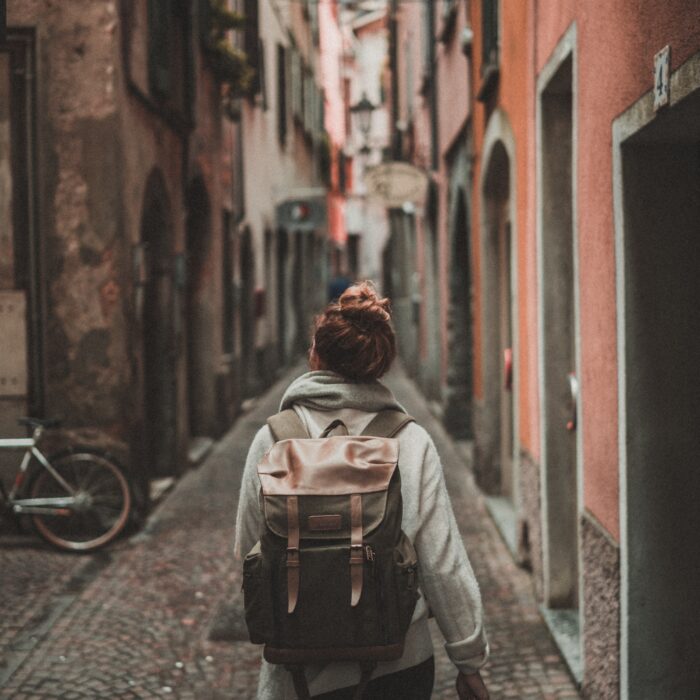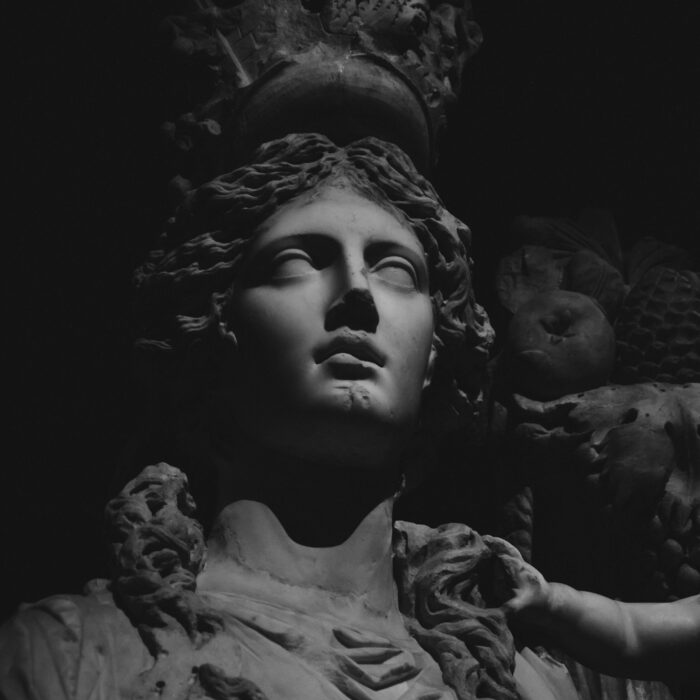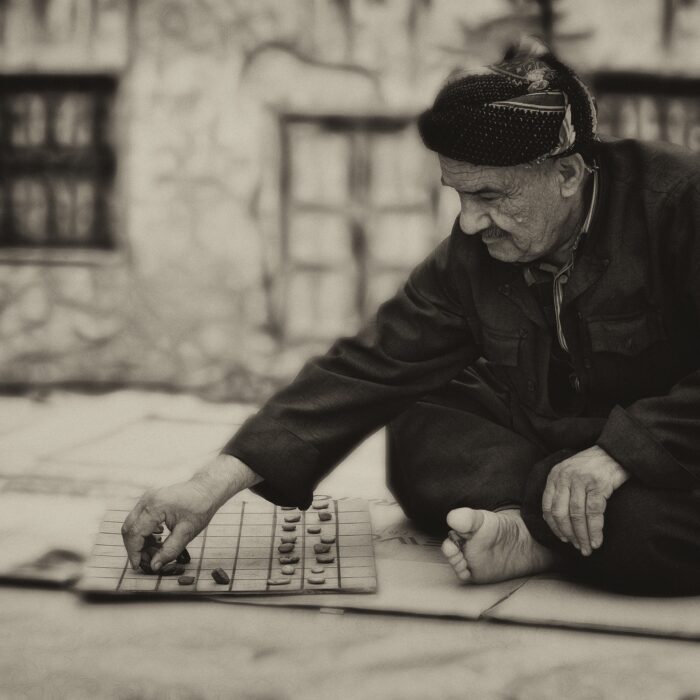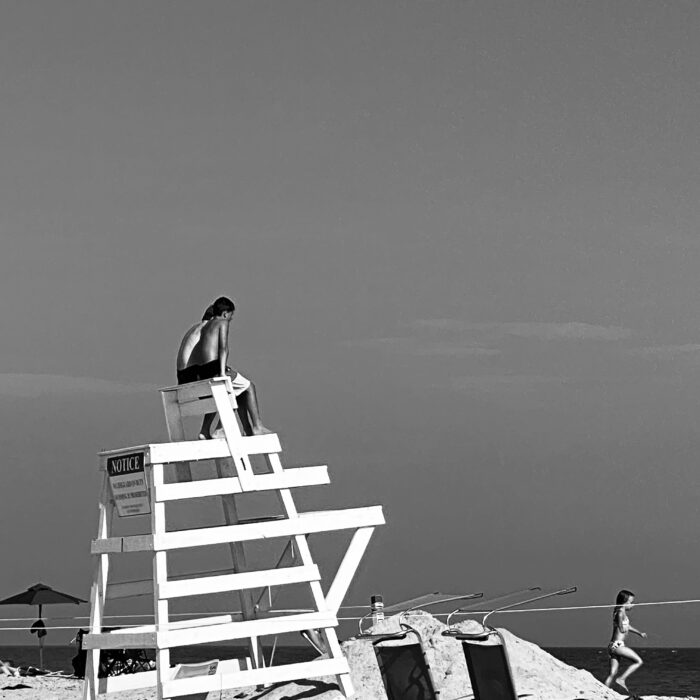You have no items in your cart. Want to get some nice things?
Go shopping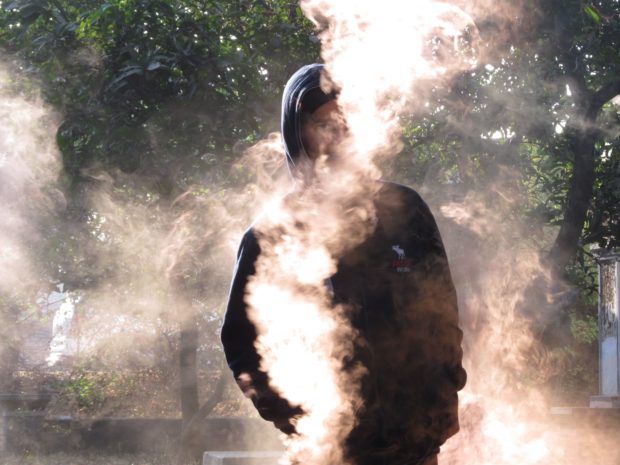
Mum came to Britain from Pandori village in Punjab, India, aged seventeen. Fatherless, she had sung her own poetry in school assemblies and played Kabaddi in shame-fetching hot pants. Her family hated her. Fatherless girls attract the deprived, hateful eyes of repressed, pathetic men. Rumours about her nine-year-old vagina’s tendency to be violated by the penises of rapists had already prompted the wheels of her ruination. Did she have to draw more attention to herself than was already glaring? Who was she, declaring her own talents of writing and dancing and singing? Talent was only eye-worthy when discovered by accident and acknowledged in whispers and poignantly denied by The Talented. As my cousin explained to me in a burger bar decades later, Mum had no subtlety. Her self-erected halo disgusted her family.
They married her off to my dad and she moved to England. It was the late seventies. She got a job in a factory where her aunt worked, performing the limb-sore mechanics of a future machine. When her aunt and uncle came to visit her in her new home in Southall, they warned her mother-in-law in tones of scornful pity, ‘you know at break time she sits with the blackies, the whiteies. Never our-ies.’
Wait, backtrack. Hold it. Hold it.
In India, where people come in all shades of brown and light skin is idolised and dark skin is profoundly maligned, the hierarchical toxicity of the caste system necessitates a virulent, factional thinking (or in the words of Kurt Cobain, our little group has aw-aw-awl-ways been and always will, un-ti-i-il the end…).In Britain’s swinging sixties and hippie seventies, where browns were ‘wogs’ and white men beat my teenage dad recreationally, racism was so brutal it spawned a U-turn.
Back to the aunt deriding Mum’s choice of black and white friends. ‘Nevermind,’ Mum’s mother-in-law snapped in Mum’s defence. ‘She’s our daughter now.’ My grandmother defied every cliché of the Traditional Punjabi Family by adoring her unconventional daughter-in-law. (My dad fondly recalls his mother breastfeeding him until he was four, more of which another time).
Mum was one of the first women in Southall to file for divorce, thanks to the stressed, miserable women at Southall Black Sisters. I stood outside the office on Southall Broadway, absorbing the word ‘black’, unpicking our place in it. No one was black – not even Sean, my best friend, whose skin was a delicious brown and whose family was Jamaican. The world needs these crude and simple ways of seeing people, I decided. It helps us find each other. That a woman, however hued by ‘blackness’, could pitch up at Southall Black Sisters and leave her shithole of a marriage made a warm sort of sense.
Bricks smashed our windows (Divorce? Had Mum no shame?). Men came (Stan the Communist) and went (Bernard the Care Home Manager, Ashok the Sandwich Delivery Man). When the latter drove me and a fellow Punjabi girl in my class home from school, I felt her fear freeze beside me, restrained, pained. To what sinister recesses had we deviated? The sandwich delivery man was not my dad, or granddad. Or uncle. Or great uncle. She knew it, I knew it. Her parents would know it. Their neighbours would know it. My mum was a slut and a bitch. A kanjari. (Whore).
We moved into a women’s refuge and found a real family, most of whom we rarely see these days but consider our ‘cousins’ in ways our blood relatives will never be. We went from the refuge to a bed & breakfast to a council house with apple trees, to another council house, barren and peeling, to a council flat where the stairs stank of piss, each transition propelling university education to a more esoteric, glittery height. Mum left at four in the morning to clean the toilets of department stores, shaking me awake, panicked because my brother had just been sick and I had to look after him. ‘You have to look after him! You have to!’ Cleaning was the only part-time job Mum could do without sabotaging the £69 a week she received in benefits, but I think she stopped after the puking incident. If she worked, she risked neglecting three children under the age of seven. If she didn’t, she was lazy and paying for her bad ‘choices’ (us) with poverty. On Friday evenings, mum swapped her cotton salwaar kameez for a shimmering, beaded silk, painted her eyes and lips and drove us to a dark, quiet building where rows and rows of Punjabi intelligentsia paused their poetry-listening, twisted their heads like possessed cooker knobs, and scowled at Mum, her infant children, our noise. Having arrived late, mum was always last on the bill. We sat through hours of ‘wah, wah’ (wow, wow) as poet after poet (man after man) took to the stage, before my young, pretty mother of three walked timidly to the lectern, cleared her throat, introduced herself briefly and launched into song – because she sang her poetry didn’t they know – igniting bigger ‘wahs’ of enthusiasm than any other poet of the night.
This part of the story feels too easy. Doth my memory deceive me? No. The crowds surrounding her afterwards, devoid of their initial judgement and irritation, pleading for encores. Mum’s poetry stopped people. They wanted more.
But admiration was limited to poetry evenings. In almost every other space beyond whichever walls we were calling our home, the eyes on Mum were disgusted or irritated; suspicious or inconvenienced; reluctant to engage. The same English shop assistants who smiled courteously at white people screwed their faces at Mum. The same old-lady passengers who shared polite jokes with Jessica’s mum on the bus rolled their eyes at Mum. The same school mums who made space for each other on the pavement tutted past mum. To this day, the same white people who treat my mum with that subtle yet tangible contempt, change – yes, change – the second I open my mouth. Why? Mum – her accent, her brownness, her clothes and her poverty – is inferior. A triangular maths symbol, left-pointing and baseless: < = less than. Less.
It’s everywhere. The policeman barking at an elderly Muslim man politely asking his question (‘how long until I’m allowed back onto my street? I need to go home for medication’): almost the same question I ask the exact same policeman just moments later, with my British, educated accent, beside my white South African husband, receiving a polite, curbed response. The neighbour who had a go at my husband for parking in ‘his’ space (he didn’t) ending the confrontation with these friendly words: ‘because you’re a British guy, I believe you. If it were anyone else on this (predominately Asian) street… pff.’ (My husband is South African. I, for what it’s worth, am that wishy-washy, inconsistent lie of an identity: British.) The man who kicks my buggy while I’m helping my son put his gloves on, grumbling that it’s in his way, only to seem mildly embarrassed when I ask, in the aforementioned accent, what the hell he thinks he’s doing. The Sikh receptionist who treats the Bengali-accented mum with contempt and greets the white middle-class mum behind her with a glorious smile. The hijaabi children’s centre worker who patronises a fellow Asian mother (‘hold your child properly, Mum!’) and leaves the white parents to it. The nursery teacher who labels a black toddler with ‘anger issues’ to the bewilderment of her mother and the parents of her friends, completely missing the more extreme behaviour of a white middle-class toddler, defending his ‘gun play’, telling the concerned parents of his terrorised peers, ‘we don’t want to inhibit him.’ The headteacher of a brilliant school who grants the holiday requests of white theatre-makers and responds to similar requests from Asian parents with a ‘no’ so uncharacteristically cold it borders on aggressive. The two Asian COVID marshalls I witnessed, on two separate occasions, making examples of the only black people on the bus whose noses weren’t covered, apparently blind to the equally nude faces of at least four white people. My son’s nursery and its policy of separating children by funding – Thirty Hours Children in one class, Fifteen Hours Children in another. So? This: the parents of Thirty Hours Children earn enough money to warrant thirty free hours of childcare. By a significant majority, the parents of Fifteen Hours Children are eligible for fifteen free hours because they have low incomes. The result? An apartheid-resembling nursery, in which one group of toddlers is mainly white middle class and the other group of toddlers is mainly Asian working class. (Try getting in the head of a white person who grew up in Apartheid South Africa, married a Person of Colour (whoop!) and moved to Britain. Now try the head of the person they married. It’s a trip.). And when parents (brown, white, black) questioned this madness, it was repeatedly and arrogantly defended by the nursery, most recently because of COVID. Do the consequences of such segregation need spelling out? Toddlers absorb how society sees them. They learn to find their peg on the wall; their space on the carpet; the insipid hole carved for them. Yes, they pick up on these things. No, the homogeneity they go on to seek at school is no coincidence.
When I was fifteen, Mum started working for Newham Council as a Community Mental Health Support Worker. Muneeza, one of our social workers in the refuge, prepped her for the interview. The shame of surviving on benefits and free school meals was finally to end! When her team of Scots, Nigerians, mixed-race women, mixed-race men, gay women and gay men were introduced by their manager to some important council bods, Mum was touched by her inclusion in the praise.
For twenty years she worked with the most vulnerable residents in Newham – the most deprived borough of London – running support groups in art therapy and cooking and sewing, helping people shop, pay bills, complete benefits forms, and navigate the stigma of mental health: describing the stupidity of entering a service user’s house wearing full PPE (pre-COVID) because the council couldn’t afford for her to catch something. ‘I felt so silly, honestly,’ Mum told me, humiliated for her service user, feeling her thoughts. Faced with the body of a human being, Mum can only see a human being.
When the austerity cuts hit (and the government innovated its tireless war against the working class), Mum’s job changed. Instead of travelling to her service users’ homes and sourcing locations for her workshops, she had to sit in an office, answer the phone and persuade the traumatised and vulnerable calling in that they no longer needed her help. When the council was promised some government money in 2018, Mum was to dupe her service users into signing up for support she knew they’d never receive. As their lives deteriorated and two decades of her efforts dissolved into oblivion, a disorienting depression infused her bones. No longer employed to assist and empower the disadvantaged, she was instead overseeing their cruel demise from a cold, robotised gulf.
Mum. It’s a difficult relationship, for painful reasons I won’t go into here. But Mum is unable to value things supposed to be ‘superior’. She is unable to scorn that deemed ‘inferior’. She is unable to recognise the signs in faces and gestures that prompt an automatic, often subconscious, hostility in others. The cultural architecture that seals our eyes with layers of prejudice is missing in her.
‘I’m so glad you left Newham,’ Mum’s old colleague Julia told her recently at lunch. ‘They treated you like garbage.’ When the waiter served Julia with a smile and didn’t look at Mum, and poured tea for Julia and dropped the plate before Mum, and listened carefully to Julia and squinted suspiciously at Mum, Julia said simply, ‘Kulwinder, shall we eat somewhere else?’ Having witnessed this sort of shit since I was born, I invite you to picture the waiter not as a raving racist, but a person – like you – whose violent denial against the mirror of their biases disables its reality in our mouths and minds. I’ve had self-described ‘lefty’ friends who’ve laughed at the smell of Mum’s cooking, holding their noses in my house, pulling me into their circle of complicity, oblivious to the stench of prejudice lacing their actions. They would be outraged to read this. They would be the victims; I, the mentalist.
COVID hit after Mum left her council job and she applied to work as an ambulance driver. She loved her training. She loved her new title. And she loved her uniform, posing wide-smiled and thumbs skyward as my brother snapped the pic. Ambulance driving mid-pandemic – at last. She was useful again.
After a two-week training period, Mum was paired with another ambulance driver – a young man three decades her junior. Together, they would take it in turns to drive the ambulance and collect patients. But Mum’s new partner was not happy with her arrival. The stench of cigarette smoke in the driver’s cab gave her a first clue as to his potential objections with her person. Smoking is prohibited in ambulances. There were several other rules he was breaking, too. His initial disdain turned sharply hostile. ‘Pass me the gloves.’ No please. ‘Are you deaf? The gloves!’ Why was he, her equal, ordering her to do all the driving when it was meant to be shared? And how could this essential service be carried out to such shocking levels of abuse, in broad daylight, to no reprimands? Mum was returning home from twelve-hour shifts and parking the ambulance a ten-minute walk away from her overcrowded east London street, breaking yet another rule at her partner’s numbing insistence: he, the experienced driver, was supposed to return the ambulance to a hospital. If she went against his word, she faced more hostility. By obeying his orders, she risked the consequences.
Mum began to erode. The hours hung still and her partner’s hostility grew. She was a sixty-year-old woman spending twelve hours a day in a van with a man who hated her. She recognised this hate, its insouciant truth. My brother helped her file a formal complaint and she worked without a partner for a short while, during which she did her job and loved it.
Then came another partner. A friend of the old partner. Three decades younger and equally filled with disdain. Eye-rolling, screw-faced, secreting hate; bearing the same look I’ve seen on countless faces eyeing Mum. What tension in the body forms the look? What allegiances, real or imagined, prompts the choice to look with disgust at another human? The new partner – a white woman, herself a migrant – promised, in Mum’s presence, to deliver a stairlift to a patient. But instead of doing as she’d promised, she instructed Mum to carry the patient – sick, elderly, heavy – up the stairs by herself. ‘I can’t,’ Mum said. ‘Why not?’ snapped her colleague, eyes rolling. ‘Three men couldn’t carry my mum up the stairs,’ the patient’s daughter interjected. ‘We were promised a stairlift.’ ‘Kulwinder can do it, it’s her job. She’s trained to do it’ Mum’s partner lied, framing her. When mum couldn’t lift the patient and the patient’s daughter complained, Mum’s partner told their manager: ‘See? They complain we’re racist but can’t even do their jobs properly and then the patients complain. What can we do?’
They complain we’re racist.
They complain we’re racist, but.
I don’t think Mum’s ever dared complain about racism.
Mum talked to her managers, citing her colleague’s behaviour, including every broken protocol. The smoking, the short-cutting. The bullying, the lying. The infected PPE Mum witnessed her partner stuffing in her – Mum’s – bag. Management’s response? ‘We can let you redo your training,’ they said, as if it were Mum smoking in ambulances and endangering NHS staff and patients. The colleagues? No investigation, no re-training. The subtext being that if, after a formal complaint against her first partner, Mum was unable to work with her second partner, the problem lay with her. This is a private ambulance company, in case you’re wondering. Because the liberty that is our NHS is being sold, department by department, to corporations whose aim is not to provide patient-focused medical care free-at-the-point-of-need, but to turn hospitals into piggy banks and profit from our ill-health. And the very people most disadvantaged by this despotic direction of capitalism are often the ones seduced by its promise, tricked by its lies and blamed for the destruction it wreaks on humankind.
So Mum left.
Why? Friends ask in miffed revulsion, rehearsed outrage. How? Your mum should go higher up, she should write to her local MP. My brother-in-law’s a paramedic, she should speak to him. Because the onus is on her, the Person of Colour, to resolve her nightmare of racist bullying in the workplace. Not on the manager to investigate her complaints. Or the racist bullies to dissect the fact that they hated her on sight. But her. A sixty-year-old woman, poet and mother, singer and carer, whose professionalism and passion for the care of her patients were dismissed for the status quo that brutalised her.
The anger I felt towards Mum as a child – for being unable to warrant the respect freely doled to whites, for missing their cues, for failing to assume the niceties that qualify a worthwhile person – is alive and swimming today, but not for her. The thirty-something shits who decided with a single look that she was of lesser value, worth less respect, dispensable, flickable: a fly, a dust fleck – them. The fuckers. I imagine their thoughts, I’ve seen them. I’ve seen racism’s sweet smile in bewildering places, breathless at the deception of its air-sucking noose. The ‘friend’ who relentlessly pursued my friendship, randomly declaring ‘I don’t think of you as my Indian friend!’ before storing my dad as ‘Paki’ on her phone and telling me this, laughing, nudging me to join in, because it was so goddamn funny. The ‘mum friend’ whose husband didn’t want a Bengali tenant. ‘Why?’ ‘Have you ever lived with a Bengali? They smell.’ To understand the way this person must have perceived me to be able to utter these disgusting words to me is to slide into the gaps between sanity and insanity; sense and nonsense; ‘truth’ and fucking truth. The piano teacher who calls a group of Eastern-European trick-or-treaters ‘animals’, as if their behaviour is any different to that of her own (English) brats. The parents who live on the school Whatsapp chat, yet somehow miss any post from a Muslim parent, despite regularly having their questions answered by that very Muslim parent. The breastfeeding counsellor who talks to white babies in her normal voice and black babies in a bizarre ‘urban’ one – ‘are you one of da kool kidz?’ – while deriding other breastfeeding groups for their lack of diversity, using the black and brown faces in her own sessions as proof of her open-minded, culturally-on-it pulse, forming long-term bonds with mums who look and sound like her while offering fleeting – albeit flamboyant – availability to those who don’t.
Mum would say her greatest achievement is working day and night shifts (and screaming suicide threats at her babes in the few hours between) to buy the houses she would eventually sell at purchase value to her children, lifting us out of poverty and leaving herself homeless and almost penniless. After the ambulance job, she began providing End of Life care for elderly and vulnerable Londoners. ‘My patient invented penicillin!’ she told me proudly, diverting my fear of what horrors lay ahead. Word on the street: some people don’t want black or brown carers. ‘My patient is mechanical engineer, he travelled whole world,’ wittered Mum. ‘My other patient is one hundred and seven, one hundred and seven. Dorothy.’ ‘Do you have to bath her?’ I asked, uncomfortable. Concerned. ‘Pavan,’ Mum smiled softly, ‘it is a privilege to work with her body. Clean her, rinse her. Gently, gently. Check the temperature. Does she like this sponge? Is this soap okay for her skin? Such a privilege, honestly. Her body, my body. She was born once and soon she will go.’
Mum. If her body, too, were granted this respect.
Look. Notice. Think. See. To whom do you extend automatic courtesies? Who doesn’t garner a smile? Keep looking. Keep thinking. Would you speak to a middle-class white woman this way? Would he? Say or do something that helps. You don’t see colour? Start. You don’t notice these things? Begin. Because to change the way we think, we must change the way we see. We must look at ourselves, our own racism. We must recognise the urge to defend, deny, get angry. Stop that urge, hold it. Pause, breathe. Listen. Admit our fuck-ups, turn them in our hands. Absorb them, understand them. Sit with that discomfort, knowing so many more endure so much worse. Sit with it. Change with it. Only then might we rid our air of the cyclic poison that brutalises millions like Mum.
About Pavan Bhullar
Pavan is a writer and musician from London. She has completed her first novel, Staring into Darkness Sipping Tea.

